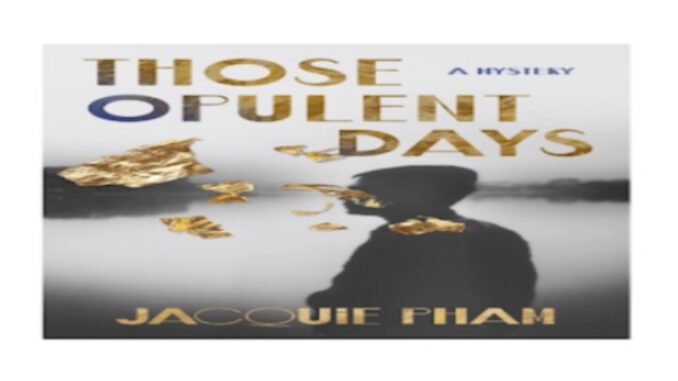

It’s not often that a historical novel is set in the Vietnam of the 1920s, a period when the land in Indochina was occupied and exploited by French colonizers. It’s also unusual that such a novel would be a whodunit murder mystery.
“Those Opulent Days,” the debut novel of Jacquie Pham, is both — and a grim coming-of-age story as well.
Pham, who grew up in Vietnam before moving to Australia, ably describes the land of her youth, its history and culture, including the well-heeled Vietnamese who were complicit in the French plunder of resources a century ago.
“The French ruled the colony,” she writes in the novel, “but they didn’t understand its people — they needed locals, rich enough, corrupt and ambitious enough, to supply them with insight and cash.”
She vividly describes the Vietnamese peasants working long hours in rice paddies, bare feet in muddy water, pale yellow conical hats to block the harsh sun. “The fields were a vast, luscious green carpet,” Pham writes, “always filled with the fresh, intoxicating scent of young shoots.” But little of this bounty went to impoverished, starving peasant families. “They would pay ground rent on a monthly basis, with hardly anything to call their own,” Pham writes.
As a mystery novel, “Those Opulent Days” is well-plotted, with a tangled web of possible outcomes. But the allure of the book’s guessing-game narrative and its historical context does not carry over into a fully satisfying reading experience.
The story is beset in part by a cast of vile characters and an overdose of melodramatic scenes. The French rulers and their prosperous Vietnamese collaborators, while living in regal splendor, partake of casual cruelty and horrid murders to such an extent they resemble cardboard cutouts of villains.
This extends partly to the four boys whose fate growing up is at the core of the coming-of-age story. The four are Duy, Minh and Phong, sons of well-to-do families in Annam, as the region then was known, and Edmond, a French youth who met them at a boarding school. They are a mix of friends, rivals and would-be lovers. They binge on opium and alcohol. When they reach their early 20s, they near a dreaded, deadly end predicted by a fortune teller years earlier.
The author understandably wants to convey the reality of the raw power held by the occupying masters over helpless underlings in the French Indochina era. But she has done so at the expense of solid storytelling.
Pham is a young writer with a lot to offer. She succeeds admirably in laying out an enticing mystery, which makes for easy reading even when overwrought. And by linking it to a faded period of history, presaging the United States’ own tragedy in the Vietnam War, she establishes herself as a writer to watch.




